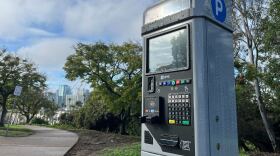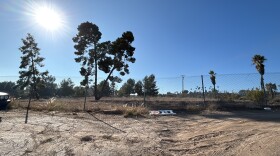President Obama on Tuesday heralded a "comprehensive partnership" between the United States and Indonesia, a fast-growing country with the world's largest Muslim population.
At a news conference in Jakarta, Obama said the Indonesia he has seen on his return visit this week bears little similarity to the country where he spent four years of his life as a child.
The president also voiced support for President Susilo Bambang Yudhoyono, whose country has been hammered by an earthquake, a tsunami and now a volcanic eruption.
Obama said the United States looked forward to returning to Indonesia next year for an Asian summit, and said he appreciateed Yudhoyono's support of the struggles of the people of Myanmar amid elections that Obama called unfair.
Obama finally made it Tuesday to Indonesia, his home for four years of his youth. But no sooner had he arrived than word came that a volcanic ash cloud would likely cut short his already quick trip.
He had to cancel two previously scheduled trips to Indonesia because of domestic events — final talks on the health care bill, and then the Gulf oil spill. The volcanic ash had looked like it might keep him from Indonesia altogether for a third straight time.
The White House decided the trip could happen. But as Obama flew from New Delhi to Jakarta Tuesday, White House Press Secretary Robert Gibbs told reporters traveling on Air Force One of the latest development — the ash cloud would probably cut the trip short.
Gibbs said the White House was working on different scenarios for how the president would spend Wednesday morning, including starting his day of events earlier. The White House is hoping Obama can still deliver a speech to the Indonesian people planned for Wednesday.
Mount Merapi, Indonesia's most volatile volcano, began erupting two weeks ago, unleashing a flood of volcanic gas, rock and debris that smothered whole villages and cut down people who tried to fleeing. More than 150 people have died.
As scheduled, the trip was less than 24 hours, with Obama arriving late afternoon Tuesday and leaving midday Wednesday. The trip was shoehorned into a jam-packed 10-day Asia trip, between three days spent in India and economic meetings in South Korea and Japan that start Thursday.
Obama and first lady Michelle Obama arrived on a gray, humid day in Indonesia's capital, and were greeted by dozens of dignitaries at Istana Merdeka, a white columned presidential palace reminiscent of the White House. Obama greeted some of the officials in Indonesian as he shook their hands.
Indonesians all over this country of more than 17,000 islands gathered around television sets in their houses, coffee shops and office buildings as Obama's plane touched down.
Even if Obama is forced to leave before planned, his quick stop in the world's largest Muslim-majority nation, an increasingly important player in Asia, will allow him to speak to the values of democracy and religious tolerance and reflect on his time here as a boy.
"Indonesia has the ability to set a very powerful example in the world," Ben Rhodes, deputy national security adviser for strategic communications, told reporters Tuesday.
After arriving, Obama met with Yudhoyono. Obama was expected to highlight areas of policy cooperation such as education and clean energy, and White House officials said the Obama administration is pumping money in to deepen the U.S.-Indonesian partnership, including $165 million for a major education effort, $136 million for climate change programs and $15 million for civil society programs.
In the evening the president and first lady were being feted at an official dinner at the state palace complex.
The U.S. has increasingly embraced Indonesia as a moderate Muslim nation and partner in counter-terror efforts in the wake of attacks in Bali, Jakarta and elsewhere in the region between 2002 and 2005. Like India, Indonesia is also seen as a counterweight to China's gathering strength. The nation of 250 million people is made up of a string of islands stretched through the Indian Ocean between Australia and Malaysia.
Obama's abbreviated schedule doesn't allow time for him to visit childhood haunts, but he intends to reflect on his personal biography in a speech to a crowd of about 6,000 at the University of Indonesia set for Wednesday morning. The future president moved to Jakarta when he was 6, after his divorced mother remarried an Indonesian, and lived here until he was 10.
Obama's stepfather was Muslim, and during his time in Indonesia Obama occasionally studied the Quran and visited a local mosque. Although Obama is Christian, that background helped foster enduring rumors in the U.S. about the president's religion.
Planning for Obama's Asia trip featured a religious controversy when the president opted not to visit the Golden Temple Sikh holy site in India, spawning rumors that he wanted to avoid wearing a head covering that could make him appear Muslim. In Jakarta the president planned to visit the giant Istqlal Mosque, the largest mosque in Southeast Asia and a popular tourist attraction.
The president was to conclude his Indonesia visit with a wreath-laying at Kalibata Heroes Cemetery, the burial site of veterans of the Indonesian National Revolution, somewhat equivalent to Arlington National Cemetery in the United States.
Obama departs Jakarta for Seoul for a summit of the Group of 20 developed and developing nations.





